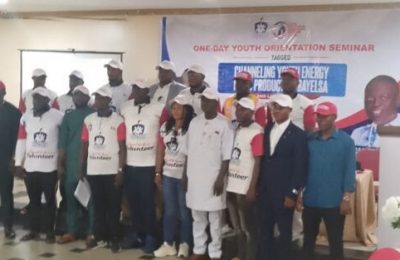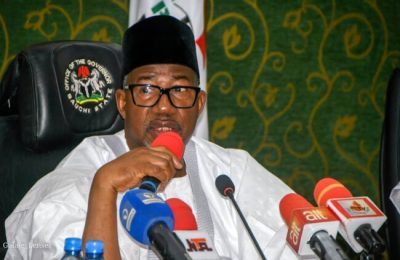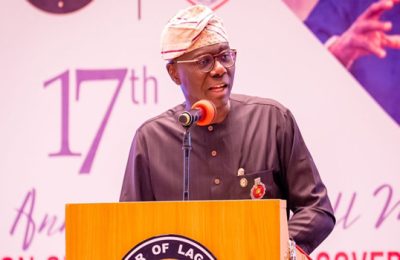
Sunday Ejike writes on the suspense trailing the wait on the Presidential Election Petition Court on the date to deliver judgment on the petitions filed by aggrieved candidates in the February 25 election.
Following the adoption of final written addresses, the coast is now clear for the Presidential Election Petition Court (PEPC) sitting at the Court of Appeal in Abuja to deliver judgment in the petitions challenging the declaration of Asiwaju Bola Ahmed Tinubu as the winner of the February 25 presidential election.

Peter Obi and his party, the Labour Party, the Allied Peoples Movement (APM), Alhaji Abubakar Atiku and the Peoples Democratic Party (PDP) are, in their various petitions seeking the nullification of Tinubu’s election on the grounds of substantial non compliance with the Constitution, the Electoral Act and the guidelines by the Independent National Electoral Commission (INEC) for the conduct of the presidential election, as well as double nomination of Vice President, Kashim Shettima. They argue that Tinubu was not qualified to contest the said election and that his declaration and return as President of the Federal Republic of Nigeria is illegal, null and void.
In their final written address adopted last week, Obi and his party insisted that the order of forfeiture of the sum of $460, 000 by the District Court of the United States against Tinubu disqualified him from contesting the February 25, 2023 presidential election In the final written address filed by their lead counsel, Dr. Livy Uzoukwu (SAN), the petitioners said, the forfeiture order against Tinubu by the United States District Court, Northern District of Illinois, Eastern Division in case No. 93C 4483 represents, “Proceeds of narcotics trafficking and money laundering.” The petitioners further submitted that, the virus of the statutory and constitutional disqualification of Tinubu and Vice President Kashim Shettima as candidates in the presidential election renders their purported return and declaration as winners of the election invalid, null and void and liable to be set aside by the court.
Obi and his party held that the non compliance by INEC with the relevant provisions of the Electoral Act and subsidiary legislation, substantially affected the outcome of the February 25 presidential election. They further told the PEPC that Tinubu’s threats of anarchy in his final address was, “cheap , misguided and destructive blackmail clearly intended to target the country’s judicialism and constitutionalism.” They saidTinubu and Shetimma went too low and abandoned discretion when they claimed that, “Our submission is that the Petitioners are inviting anarchy by their ventilation of this issue of non-transmission of results electronically, by INEC.
The senior lawyer in the address held that, “Apart from the blatant refusal to comply with the mandatory requirements of the law, the certified copies of the result of the election given to the Petitioners by the 1st Respondent (INEC) manifestly show that the purported Forms EC8As in several polling units, were affected by mutilations, cancellations, alterations and outright swapping of votes in favour of the 2nd to the 4th Respondents and against the Petitioners”.
Meanwhile, Atiku and his party, in their final written address in their joint petition challenging Tinubu’s declaration as the winner of the presidential election filed through their lead Counsel, Chief Chris Uche (SAN) held that heavens will not fall if justice is done by annulling Tinubu’s election.
They said the February 25 presidential election is the worst in the annals of general elections in Nigeria as it was marred with brazen subversion of the will of the Nigerian voters, despite the enactment of a new Electoral Act, the introduction of promising technological innovations to ensure transparency, massive investment of public funds and guarantees by the Independent National Electoral Commission (INEC) that conducted the election.
According to Atiku, INEC, under the excuse of “technical glitch”, deliberately manipulated the election results through suppression and discounting of his votes and inflation of the votes of Tinubu.
The petitioners submitted that, “The deliberate bypass of the use of the prescribed verification technology nationwide substantially affected the outcome of the election.”
Uche said in the address that, INEC proceeded to declare Tinubu winner when he (Tinubu) did not meet the mandatory constitutional requirement of securing not less than a quarter of the votes cast in the Federal Capital Territory, Abuja.
Atiku and his party told the Presidential Election Petition Court (PEPC) that Tinubu is constitutionally disabled from contesting for the office of President of Nigeria in the light of the forfeiture judgement against him of the sum of $460,000 for narcotics related crime (proceed of crime) in the United States, as well as holding dual citizenship of Nigeria and Guinea in addition to presenting forged documents to INEC.
Atiku and PDP raised four issues for the determination of the court – whether the return of Tinubu as winner of the presidential election was not invalidated by reason of substantial non compliance with the novel and mandatory provisions of the Electoral Act 2002 on electronic transmission of results for collation and verification; whether Tinubu was lawfully declared and returned as the winner of the presidential election, having not secured one quarter of the valid votes cast in FCT as required by the constitution; whether Tinubu was not disqualified under the provisions of the constitution to contest the presidential election, having regard to order of forfeiture arising from drug-related offence, his acquisition of the citizenship of a country other than Nigeria and presenting forged certificate to INEC; whether INEC was not wrong in returning Tinubu when he was not duly elected by majority of the lawful votes cast in the election. They further submitted that the nation and its judiciary stand at the threshold of history and that, “The fact that a presidential election has never been nullified by the court in Nigeria before now, is not a good reason not to do so now, as is very just to so do. The petitioners also asked the court to uphold the submission by INEC that he won 21 states in the February 25 presidential election. Atiku said INEC’s assertion that he won in 21 states of the Federation was neither disputed, retracted, debunked nor claimed to be an error through the proceedings of the Court so far.
In the final written address, filed by the All Progressives Congress (APC) by its lead counsel, Lateef Fagbemi (SAN) in defense of the victory of Tinubu at the February 25 presidential election, the party claimed that the documents presented by Alhaji Atiku Abubakar and his party were fraught with inconsistencies and high variation. On the allegation of falsification of Chicago State University certificate, the party said by the provisions of Constitution of Nigeria, Tinubu, having been educated to secondary school level, is eminently qualified to contest the February 25 presidential election and occupy the office of the President of the Federal Republic of Nigeria. It said, the Issue of presenting false certificate would only become an issue if it was presented to make the candidate scale hurdle of educational qualification that he otherwise did not possess. The party said, the bone of contention is the petitioners’ allegation that the Chicago State University Certificate so presented was “forged”, as there are some features such as date of birth, name, gender and state of Origin on the face of the document showing that same does not belong to Tinubu thereby making the provisions of Section 137(j) of the Constitution relevant in the consideration of the issue.
The APC said all the documents tendered by the petitioners in their attempt to establish the allegation of forgery of the certificates Tinubu presented to INEC are inadmissible in law. The APC held that the ten witnesses called by Atiku Abubakar and his party, even if believed, have not advanced the petitioners case by an inch and added that, the purported evidence of the 27 witnesses called by the Petitioners is not only poor but also deficient in credibility to disturb the presidential election which was held all over the Federation in substantial compliance with the provisions of the law.
INEC, in its address, submitted that Tinubu won the February 25 presidential election and was validly returned as the winner. In a reply by its lawyer, Abubakar Mahmoud (SAN) to the petition filed by Atiku and his party, INEC said Tinubu met all the legal requirements to be announced as the winner of the election.
The electoral body argued that a candidate must not secure 25 percent votes in the nation’s capital, Abuja, to be declared winner, because the FCT wasn’t accorded any special status in the constitution as being erroneously portrayed by some candidates and political parties who lost the Presidential election. On why it returned Tinubu as the winner of the Presidential election, INEC said the APC candidate got 25 percent of the valid votes cast in 29 States across Nigeria. “Having scored at least one-quarter of the valid votes cast in 29 states, which is over and above the 2/3 states threshold required by the constitution, in addition to scoring the majority of the lawful votes cast at the election, the 2nd respondent was properly declared winner and returned as the president-elect of the Federal Republic of Nigeria”, INEC said and appealed to the court to dismiss the petition.
President Tinubu in his reply, told the court to decline the request to nullify the February 25 election that produced him as president, on account that he did not score 25% of the lawful votes cast during the election in the FCT. Tinubu’s submissions were contained in his final written address against the two petitions pending before the court filed on his behalf by his lead counsel, Chief Wole Olanipekun (SAN) who further argued that, while Section 3(1) of the Constitution specifically lists the 36 States by their respective names, the sidenote reads thus: “States of the Federation and the Federal Capital Territory, Abuja.” Section 299, for ease of reference and clarity, provides thus: “The provisions of this Constitution shall apply to the Federal Capital Territory, Abuja as if it were one of the States of the Federation…” The phrase ‘as if’ has been defined in Corpus Juris Secundum, page 298 as connoting “in the same manner and to the same extent.”
After the petitioners and the respondents adopted their final written addresses, the five-member panel of the Presidential Election Petition Court (PEPC), presided by Justice Haruna Tsammani, reserved the date for judgment to a date that would be communicated to parties in the various petitions. So, the waiting game goes on.
READ ALSO FROM NIGERIAN TRIBUNE







